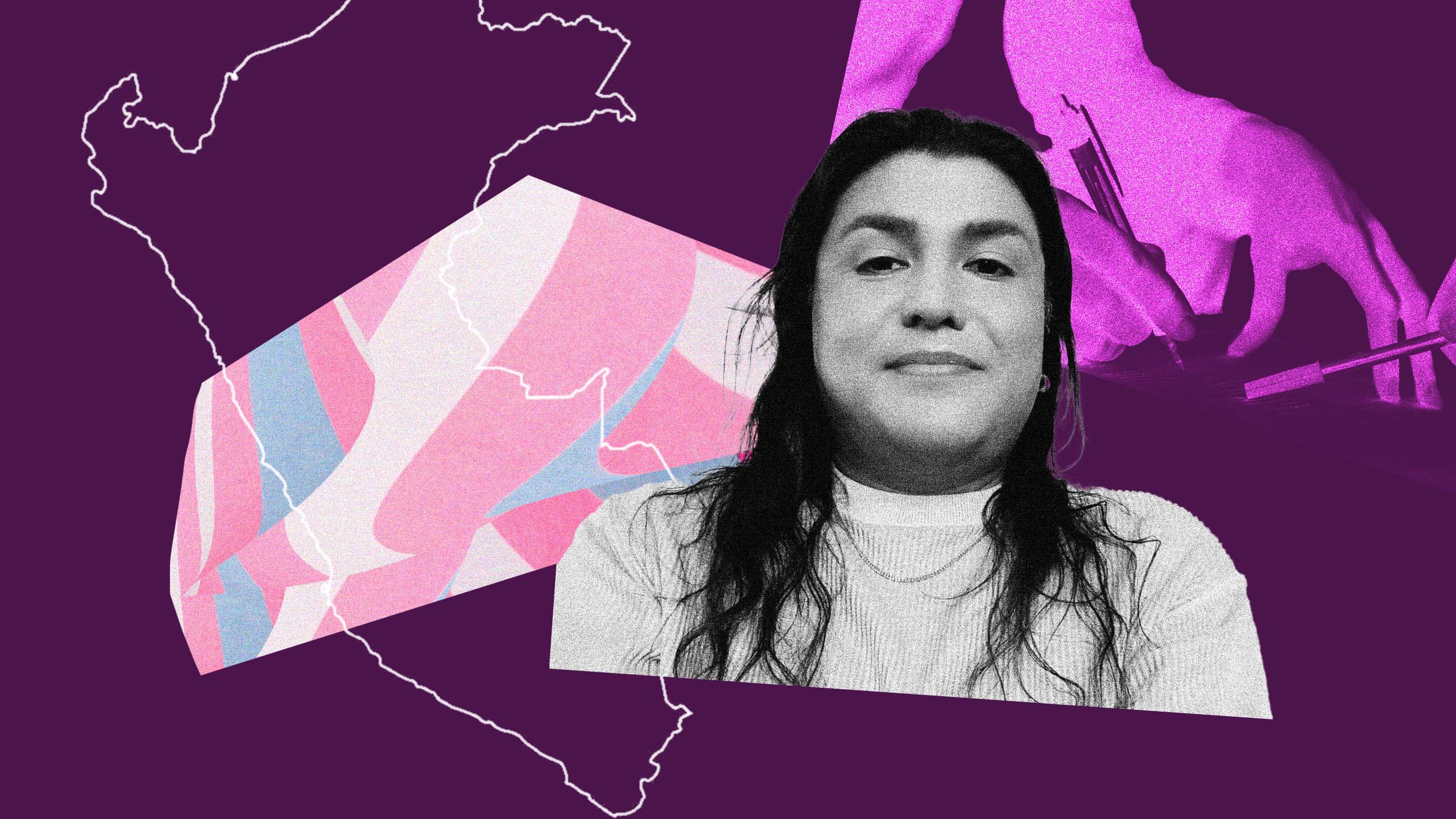Peru currently has no legal protections for trans people who experience hate crimes. Trans activist and lawyer Miluska Luzquiños Tafur, who is based in Peru, wants to change that. Working as project coordinator for TRANScendent Opportunities, a group partnered with the YMCA in both Peru and Toronto that aims to strengthen trans communities by providing leadership and employment opportunities for trans people in Peru, Tafur has written a gender identity law that is currently in hearings, but has yet to be codified. Tafur tells Xtra, “Having a legal framework of protection and recognition lowers the violence and the stigma [against trans people].”
LGBTQ+ people in Peru face many challenges. Peru is one of the few South American countries that does not yet legally recognize same-sex couples, and queer and trans people face widespread discrimination in both private and public spheres. Trans people in particular are systemically disadvantaged: “The majority of trans women never went to school or dropped out at a very young age. Many of them are sex workers or are victims of human trafficking” Tafur says.
Because trans people have an extremely difficult time accessing legal documents, more than 10 percent lack a Documento Nacional de Identidad (National Identity Document or DNI) altogether. DNIs and other official documents are needed in order to access healthcare and social services, meaning that most trans people cannot access medical care or other necessities. Tafur says, “Many continue dying [of] HIV/AIDS and tuberculosis in a country where there has been a lot of money invested to better the public health conditions, and still [they] don’t even have access to primary healthcare for trans women.”
In addition to the lack of legal protection and access to social services, trans people in Peru face major barriers to changing their legal name and sex designation. While a trans person can stand before a judge to make the change to their DNI, the process is expensive, often takes an excessively long time and requires the individual to have already undergone gender-confirmation surgery. Without a gender identity law, Tafur says, “A change in the name of a trans person can take up to three years and a sex and name change together has taken up to 35 years.”
“A change in the name of a trans person can take up to three years and a sex and name change together has taken up to 35 years.”
Tafur emphasized the personal affirmation that passing the gender identity law would bring. Asked about her hopes for the future of the trans movement in Peru, she says, “As the author of the gender identity law, I would like to be buried as Miluska, and that’s the aspiration of all of us, to have a dignified death and part of the dignity for trans persons is that we are recognized by the name that has stayed with us our whole life.”
The lack of identification corresponding to one’s name and gender identity contributes to widespread discrimination against trans people. Tafur says that without accurate identification, trans people are outed to anyone who sees their legal information, whether that is an employer, landlord or police officer. This makes them vulnerable to discrimination and violence.
The gender identity law project was presented to Congress in 2016 with the signatures of 16 congresspeople with multiparty participation. The goal of the law is to allow these changes to be made on an administrative basis and to provide legal protections for trans rights. “Having a legal framework of protection and recognition lowers the violence and the stigma [against trans people],” Tafur says. Other countries across South America have already implemented similar laws and seen positive results. “In countries like Chile, Bolivia, Argentina and Uruguay, there has been proof that having a gender identity law lowers the risks [of violence] against the lives of transgender people,” Tafur says.
During the COVID-19 lockdowns in 2020, the Peruvian government implemented a gender-segregated lockdown mandate, enforced by the Peruvian police and armed forces. During the lockdown, men were only allowed to go out in public on certain days, and women were only allowed out on other days. In addition to blatantly disregard the existence of non-binary and gender-diverse people, the mandate also created a very difficult situation for many trans people. It was unclear what day trans people should go out on, given that most trans people’s documents do not match their gender identity. Tafur said that many trans people were assaulted and killed by police and other transphobic individuals during the lockdowns. She also emphasized that the Peruvian government has not yet acknowledged the violence it perpetuated against its trans citizens during this time.
In spite of this systemic discrimination, the trans community in Peru has organized in the face of transphobic violence. Legal battles, such as the fight for a gender identity law, are made possible through community organizing that helps trans people through the daily challenges they face. Tafur states, “We need better living conditions and to start looking at ourselves with love.”
Trans community organizing in Peru is currently heavily centreed around passing the gender identity law. Better access to name and sex-designation changes will make many aspects of daily life for trans people in Peru much easier, and will allow community organizations to focus on other issues facing the trans community. Recognizing the role of gender identity in hate crimes against trans people will create a better legal framework through which to demand justice for those killed in transphobic murders. Tafur says that the gender identity law has not received approval yet, due to strong conservative sentiments within the government and the lobbying of anti-trans groups.
If passed, the gender identity law will not end the struggle for trans rights in Peru. As Tafur explains, “From there we will have to continue fighting to formalize the law within public policies.” The passing of this law would constitute a major turning point for trans human rights in the country. Tafur says, “I believe that in the future, the future of the trans movement will be marked by before and after the approval of the law.”
When it comes to TRANScendent Opportunities and other community organizations in Peru such as Organizacion Feminista por los derechos humanos de las personas trans, Casa Trans Zuleymi and the Latin American and Caribbean Network of Trans People, Tafur says, “To promote more rights, we need more resources.” Trans activism in Peru is carried out with very little financial support, making it hard to keep organizations and projects for trans human rights going. Tafur asks that people looking to support trans human rights in Peru reach out to the YMCA in Toronto so that they can help TRANScendent Opportunities and other important programs.


 Why you can trust Xtra
Why you can trust Xtra


